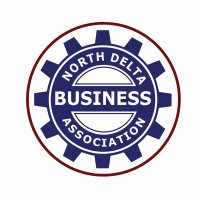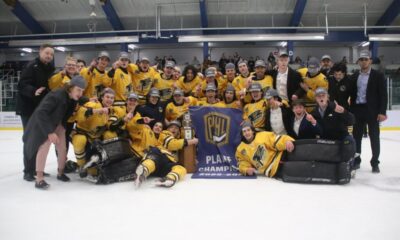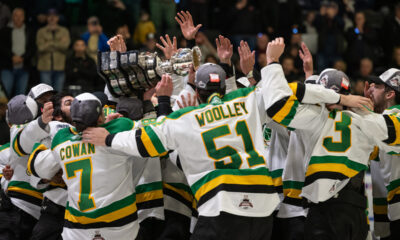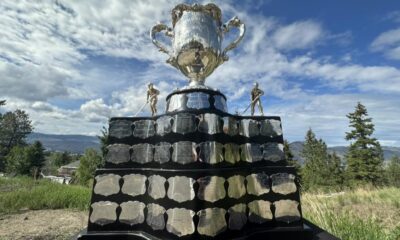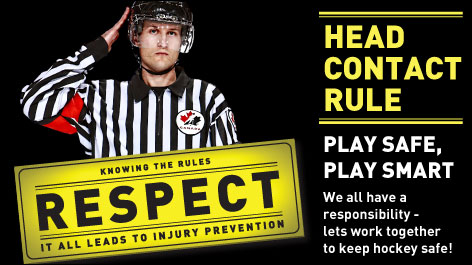
The rule has been in place since the start of 2011-12, but some parents still fail to understand the importance of safety.
Especially to the young players enjoying Canada’s National Winter Sport. It is strictly enforced by all officials.
Below is the wording included in the Hockey Canada Rule Book, outlining when the penalty is to be called and what penalty is to be assessed.
Rule 6.5 – Head Contact
(a) In minor hockey and female hockey, a minor penalty shall be assessed to any player who accidentally contacts an opponent in the head, face or neck with his stick or any part of the player’s body or equipment.
(b) In minor hockey and female hockey, a double minor penalty or a major and a game misconduct penalty, at the discretion of the referee and based on the degree of violence of impact shall be assessed to any player who intentionally contacts an opponent in the head, face or neck with her stick or any part of the player’s body or equipment.
(c) In junior hockey and senior hockey, a minor and a misconduct penalty, or a major and a game misconduct penalty, at the discretion of the referee based on the degree of violence of impact, shall be assessed to any player who checks an opponent in the head in any manner.
(d) A major and a game misconduct penalty, or a match penalty shall be assessed any player who injures an opponent under this ru
(e) A match penalty shall be assessed any player who deliberately attempts to injure or deliberately injures an opponent under this rule.
Note:
All contact above the shoulders (neck, face and head) is to be called Head Contact under one of the above (In minor hockey and female hockey).
Clarifications on Head Contact for junior hockey and senior hockey only
Referees should be aware of the tragic consequences of head injuries and concussions and strictly enforce the rule. It is the responsibility of players, team officials and referees to make every attempt possible to reduce the incident of this frightful injury.
Team officials can teach players legitimate methods of checking an opponent, while players can be educated to the dangers of checks to the head.
The referee has the responsibility to penalize players who contact an opponent in the head.
If the referees are consistent and strict in calling infractions that may lead to concussions, then along with the cooperation of players and team officials, these type of fouls and the chances of a player suffering such injuries can be significantly reduced.
The Head Contact penalty is based on the “degree of violence of impact” and can be defined in three categories: minimal, moderate and severe.
Minimal impact would be called under other appropriate rules – elbowing, high-sticking, roughing, roughing after the whistle, etc. A glancing blow or minimal impact to the head where a penalty is warrant.
.Moderate impact would be a more significant degree of violence without injury that warrants a minor and misconduct penalty under the Head Contact rule.
Severe impact would be a high degree of violence, with or without injury, which warrants a major and game misconduct or a match penalty, at the discretion of the referee under the Head Contact rule.
What previously may have been considered a legal check with a shoulder check to the head shall now be penalized as Head Contact if moderate or severe impact is made.
These Head Contact infractions can occur anywhere on the playing surface as a result of the initial contact to the head.
Head Contact could also be the result of an open ice hit, with or without the fouled player’s head being down.
Body checking has not be been removed from the game, but high hits or targeting the head shall be penalized.
A fight is still to be called a fight, not Head Contact.
Referees are to strictly enforce penalties that call for infractions as a result of low hits as these types of infractions may increase.
The penalty signal for Head Contact will be patting flat (open palm) of the non-whistle hand on the side of the head.

Advertise With Sportswave
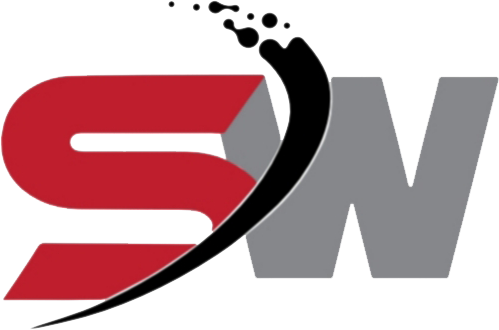
About Sportswave
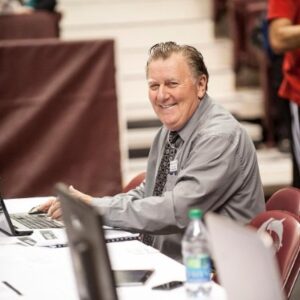
SICAMOUS HOUSEBOATS
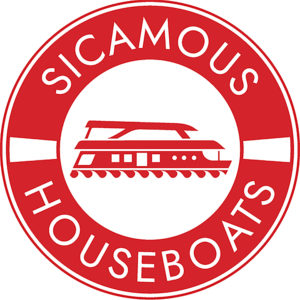
Delta Islanders Jr. A Lacrosse
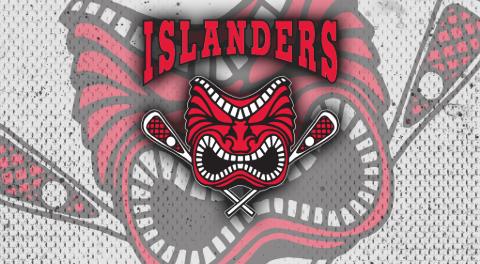
North Delta Business Association
